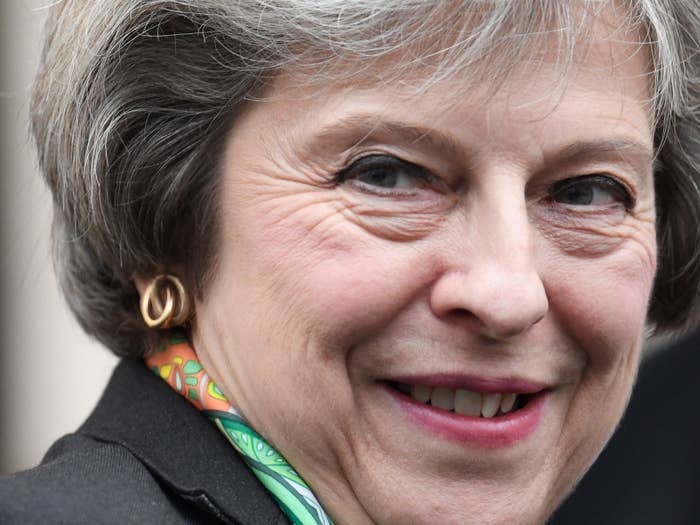
Theresa May has strongly hinted the UK will not have full membership of the European single market when the country leaves the EU, suggesting once again that her government will prioritise the ability to put controls on immigration ahead of free trade.
"What we are doing is going to get an ambitious, good, best-possible deal for the United Kingdom in terms of trading with – and operating within – the single European market," she said.
The European single market is the pan-EU market which allows the free movement of goods, services, people, and money across most of the continent.
Supporters of a so-called soft Brexit had hoped that May would consider a deal where the UK leaves the EU but retains full access to the market, adopting a similar deal to the likes of Norway or Switzerland.
However, the UK would almost certainly have to accept the free movement of people if it wants to strike a similar deal with the EU. Without that it would be more likely that the UK would have to settle for partial access to the single market, similar to a recent deal arranged by Canada.
Listening to the prime minister's first speech of 2017, just weeks ahead of the formal declaration of Article 50 which will begin the process of leaving the EU, there was little sign she is likely to come out in support of free trade at the expense of immigration controls.
"I don’t accept the terms 'hard' or 'soft' Brexit," the prime minister said in response to questions from journalists. "It will be a new relationship because we won’t be members of the EU any longer. We will be outside the European Union, and therefore we will be negotiating a new relationship across not just trading but other areas with the European Union."
In addition to a pledge to overhaul mental health funding – with limited details about how it would be funded – May used her speech to repeatedly criticise globalisation.
Although May insisted free market capitalism brought wealth to the country, she was relentlessly sceptical over whether it was beneficial for most people – a marked difference from the emphasis on international trade seen under David Cameron and George Osborne.
"People are questioning whether the system of globalisation, free markets and free trade – one that has underpinned so much of our prosperity – is actually working for them," she said.
Dropping in references to her new soundbite of the "shared society", she went on to complain that a "cult of individualism" had taken hold in Britain, with the internet enabling people to feel more at home in "a broader global community" than in their own towns and cities.
Instead, she suggested, a more interventionist government approach is needed to help people outside major cities.
"Just as we need to act to address the economic inequalities that have emerged in recent years," she said, "so we also need to recognise the way that a more global and individualistic world can sometimes loosen the ties that bind our society together, leaving some people feeling locked out and left behind."
In another change of tone she also criticised "laissez-faire liberalism that leaves people to get by on their own".
"The central tenet of my belief – the thing that shapes my approach – is that there is more to life than individualism and self-interest," said the Conservative prime minister.
